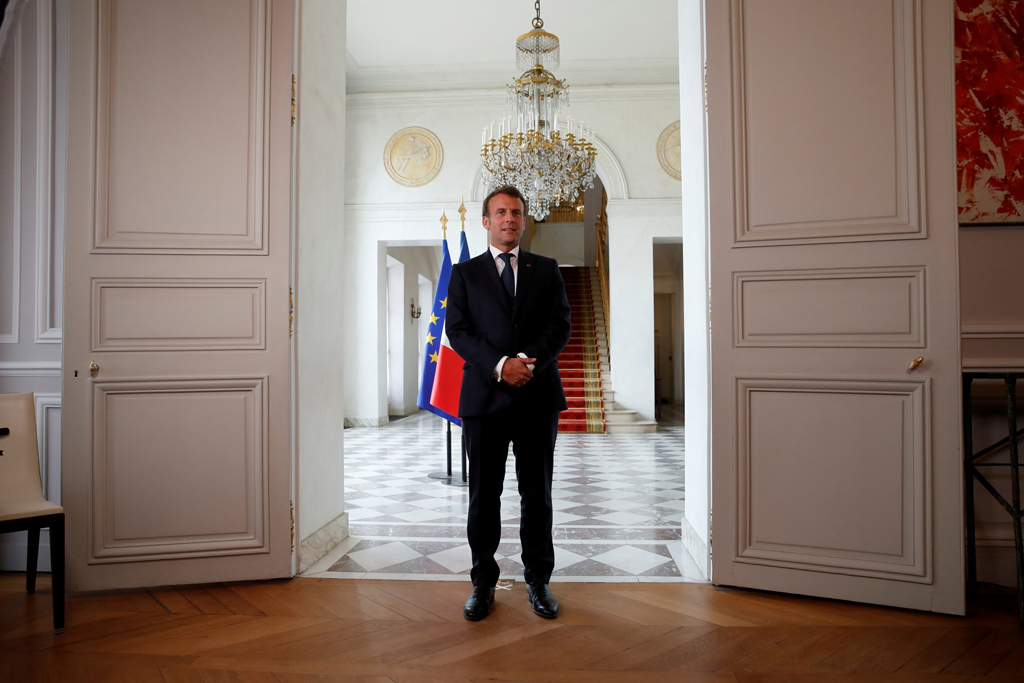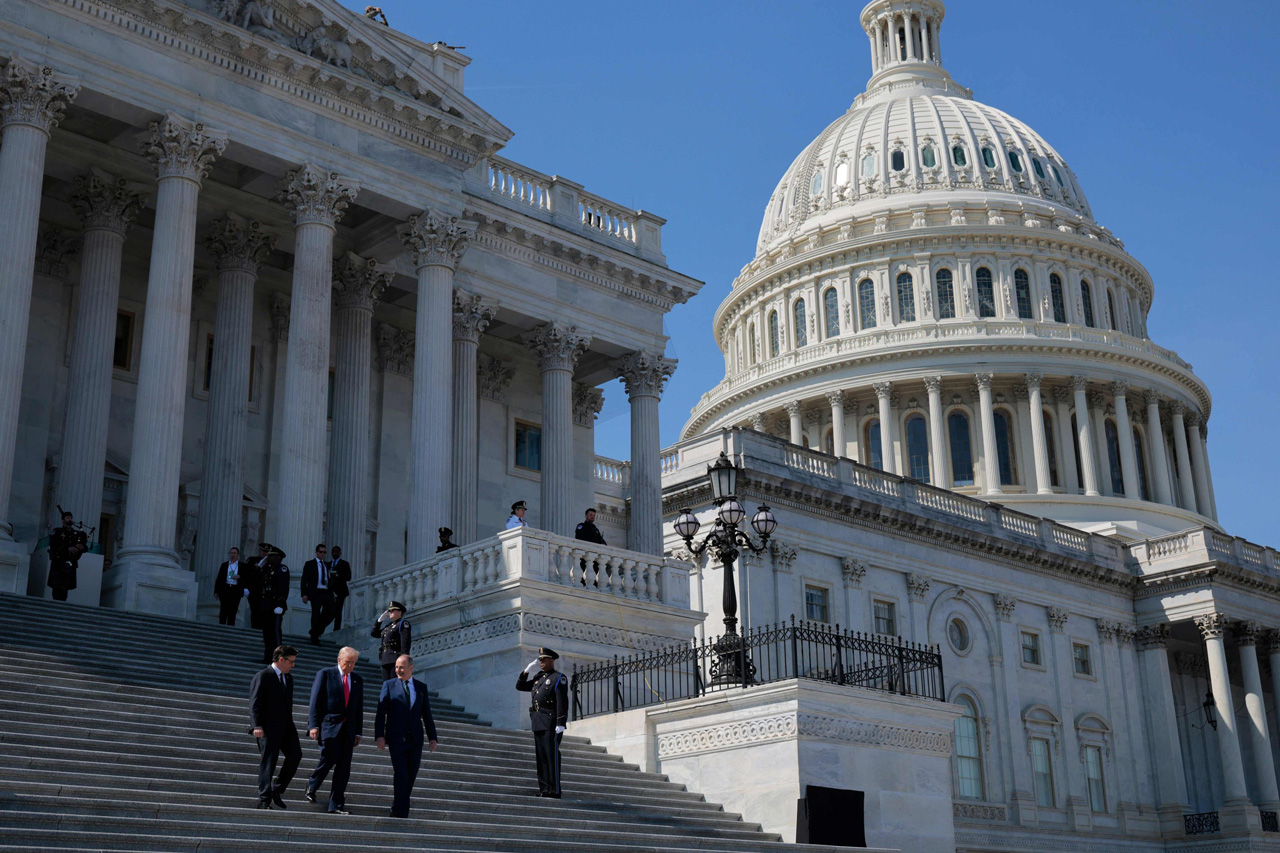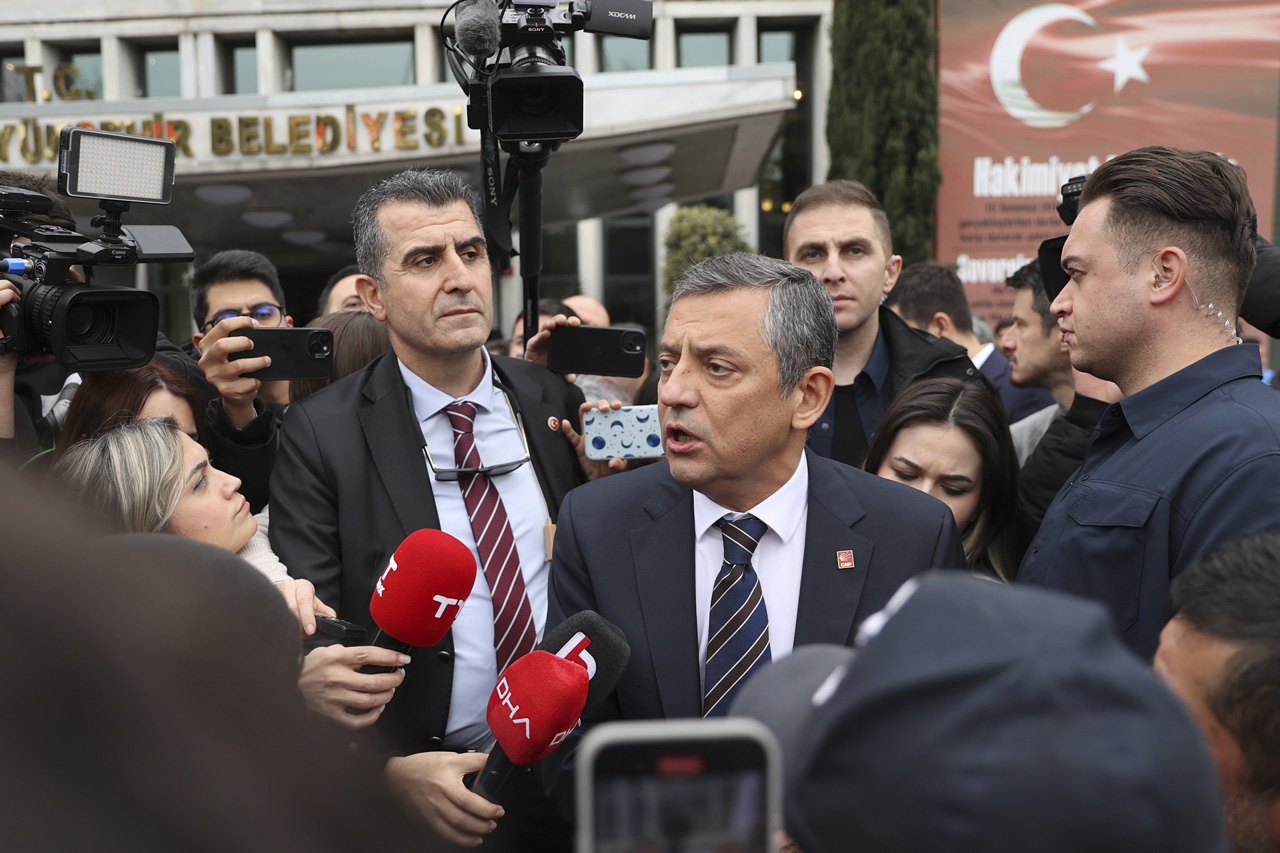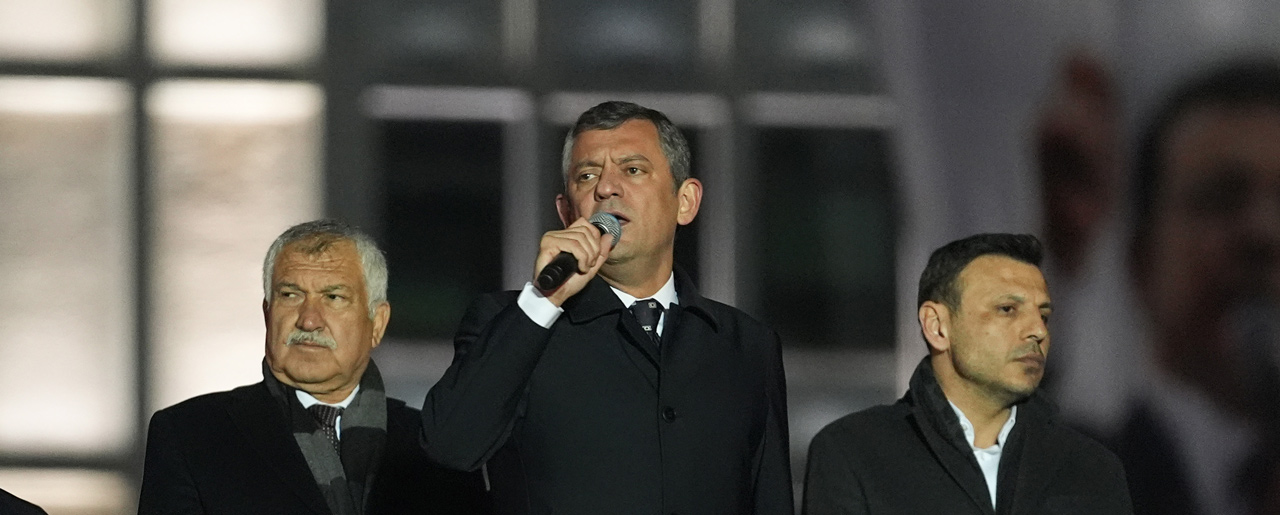
Macron's damage to NATO and EU
Tensions between Turkey and France have escalated over Libya. The latter is part of a group of countries infuriated by putschist Gen. Khalifa Haftar’s most recent military defeats. Having failed to stop a Turkish vessel en route to Tripoli, Paris now seeks to limit Ankara’s room to maneuver through the European Union and NATO. French President Emmanuel Macron announced that his government would not allow Turkey’s “dangerous game” in Libya, as his foreign minister, Jean-Yves Le Drian, urged the EU to discuss the future of its relationship with the Turks “with nothing ruled out, without being naive.” He attempted to justify his call with reference to the organization’s own interests.
Share
Tensions between Turkey and France have escalated over Libya. The latter is part of a group of countries infuriated by putschist Gen. Khalifa Haftar’s most recent military defeats. Having failed to stop a Turkish vessel en route to Tripoli, Paris now seeks to limit Ankara’s room to maneuver through the European Union and NATO. French President Emmanuel Macron announced that his government would not allow Turkey’s “dangerous game” in Libya, as his foreign minister, Jean-Yves Le Drian, urged the EU to discuss the future of its relationship with the Turks “with nothing ruled out, without being naive.” He attempted to justify his call with reference to the organization’s own interests.
Macron and Le Drian have absolutely no intention of revitalizing the accession talks between Turkey and the EU or of finding a joint solution to pressing problems. Instead, the French president follows in Nicolas Sarkozy’s footsteps to offer the Turks a low-profile partnership based on dependency. Unable to stomach his client Haftar’s failure, he accuses Ankara, which supports Libya’s legitimate government against a coup plotter, of aggression with a rage reminiscent of colonial times. Like Greece, France seeks to use the EU to mount pressure on Turkey.
Macron’s anti-Turkish campaign seriously undermines the interests of the EU and the broader Western alliance. Having invited Russia into Libya and the rest of North Africa by endorsing Haftar, Paris places at risk NATO’s southern flank and causes an irreparable geopolitical loss for the EU. The situation in Libya threatens to pose new problems for the EU, whose ineffectiveness in the Syrian conflict had resulted in refugee waves and acts of terrorism.
The EU’s inability to devise a common defense and foreign policy is no secret. That some members impose their narrow national interests on the organization further limits Europe’s relevance in world politics. Taking a page from Greece’s book, whose maximalist policies on Cyprus, the Aegean and the Eastern Mediterranean overburdened the bloc, France now takes steps that will put NATO and the EU in a difficult position.
Although Macron claims to support Haftar in the name of fighting extremism, among his client’s ranks are the Madhkali-Salafis, a radical and ultra-conservative group. At the same time, Paris paves the way for Russia to extend its influence further south, into Libya, after Ukraine, Georgia and Syria. Hostile toward Turkey, a regional player, the French president tolerates Moscow to permanently involve an outside power in the region’s affairs. Having dragged Libya into a bloody civil war back in 2011, France now risks that country’s partitioning and placement under Russian influence.
In truth, the EU could work with Turkey in the Libyan theater. Yet German Chancellor Angela Merkel would have to force Macron to revise his Libya policy, which has played into Russia’s hands at the expense of European interests. Failure to accomplish that goal could reduce the EU to a passive bystander in Libya. European governments would be better suited to defend their interests by cooperating with Turkey instead of blaming it.
One thing is clear: Ankara devised a fresh foreign policy back in 2016. Having successfully managed a number of crises since then, Turkey currently conducts military operations in Syria, Iraq and Libya – something that would have been unimaginable back in the 1990s or the 2000s. In Iraq and Syria, the country seeks to permanently defeat terrorism through cross-border operations. At the same time, Turkey is prepared to use hard power to ensure the fair distribution of resources in the Aegean Sea and the Eastern Mediterranean. Indeed, its most recent actions in Libya reflect those priorities. Turkey today seeks to defend its national interests through proactiveness and by showing initiative – as opposed to isolation and fears over survival.
Under Germany’s presidency, the European Union should make a fresh start with Turkey by addressing the refugee crisis, updating the customs union and finalizing visa liberation – along with cooperating with Ankara in the Libyan theater. It goes without saying that Macron, with his colonialist vanity, is in no shape to serve that purpose. Sadly enough, the ambitious Frenchman cannot even respond to warnings from U.S. President Donald Trump and Turkish leader Recep Tayyip Erdoğan.
Facing no such challenge, Merkel merely needs a little courage. She made valuable contributions to Europe over the years. Before her departure from political life, the German leader can score one more strategic victory for the old continent.
[Daily Sabah, 27 June 2020]
Tags »
Related Articles
Policy Report
European Sky Shield Initiative | Capacities, Criticisms, and Türkiye’s Contribution
February 2025








